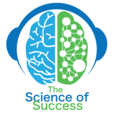How You Can Predict The Future Better Than World-Famous Experts - The Art & Science of Risk with Dan Gardner

Summary: <div>In this episode we discuss the radical mismatch between your intuitive sense of risk and the actual risks you face. We look at why most experts and forecasters are less accurate than dart throwing monkeys. We talk about how to simply and easily dramatically reduce your risk of most major dangers in your life. We explore the results from the “good judgment project” study of more than 20,000 forecasts. We talk about what superforecasters are and how they beat prediction markets, intelligence analysts with classified information, and software algorithms to make the best possible forecasts and MUCH more with Dan Gardner.</div><br> <div> </div><br> <div>Dan Gardner is a <em>New York Times</em> best-selling author and a senior fellow at the University of Ottawa’s Graduate School of Public and International Affairs. His latest book <em>Superforecasting: The Art and Science of Prediction</em>, which he co-authored with Philip Tetlock. <em>Superforecasting</em> was chosen as one of the best books of 2015 by <em>The Economist</em>, Bloomberg, and Amazon. Dan is also the author of Future Babble and Risk: The Science and Politics of Fear and previously worked as a policy advisor to the Premier of Ontario and a journalist with the Ottawa Citizen. </div><br> <ul> <li>How and why people make flawed judgements about risk</li> <br> <li>The radical mismatch between our intuitive sense of risk and the actual risks we face</li> <br> <li>Why we are the safest, healthiest, wealthiest people to live on planet earth (and we don't realize it)</li> <br> <li>Why we focus on vivid, dramatic risks, and ignore the real dangers in our lives</li> <br> <li>How to simply and easily dramatically reduce your risk of most major dangers in your life</li> <br> <li>The power of “meta cognition,” what it is, and why it’s so important</li> <br> <li>Lessons you can learn from the mega successful investor George Soros</li> <br> <li>Why most forecasters are less accurate than monkeys throwing darts</li> <br> <li>The difference between foxes and hedgehogs (and why you never want to be one of them)</li> <br> <li>The inverse correlation between fame and prediction accuracy</li> <br> <li>What cancer diagnosis shows about how averse people are to uncertainty</li> <br> <li>The universal principles of good judgement</li> <br> <li>The importance of intellectual humility and intellectual curiosity</li> <br> <li>Why certainty is an illusion and nothing is ever certain</li> <br> <li>Why everything is a question of degrees of maybe (probabilistic thinking)</li> <br> <li>The results from the “good judgement project” study of more than 20,000 forecasts</li> <br> <li>What superforecasters are and how they beat prediction markets, intelligence analysts with classified information, and software algorithms to make the best possible forecasts</li> <br> <li>The differences between these “superforecasters” and regular forecasters</li> <br> <li>The importance of being “actively open minded"</li> <br> <li>Why you should unpack smaller questions & looking things like base rates</li> <br> <li>How to use “fermi estimates” to solve tough and challenging problems</li> <br> <li>Why the growth mindset had a huge impact on positive ability to forecast</li> <br> </ul><div>Need to do some planning for next year? Listen to this episode!</div>
